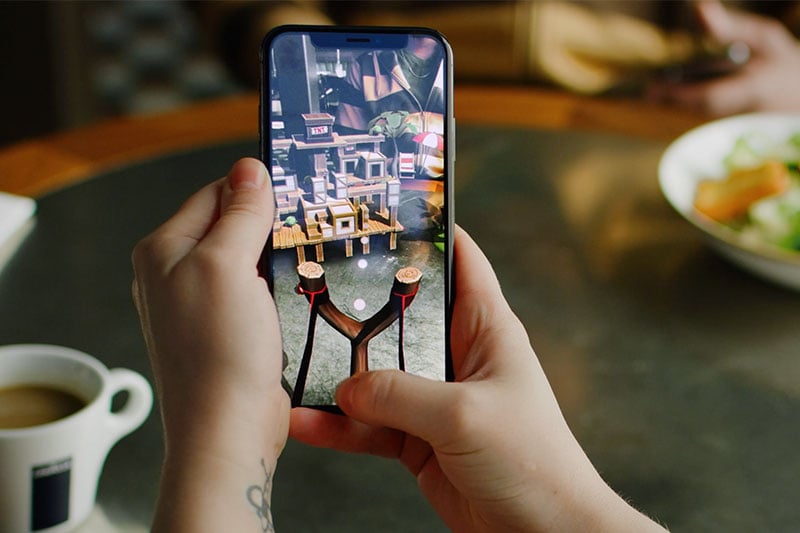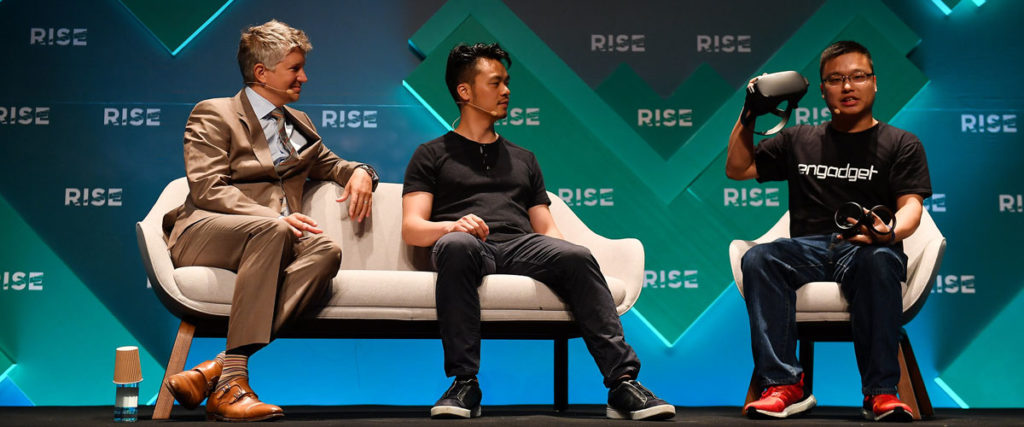Best known for spearheading Candy Crush Saga, Resolution Games CEO and Co-Founder Tommy Palm now sees AR and VR games as the future.
Tommy Palm is best known for being the spokesperson and games guru at Candy Crush Saga, the highly-addictive puzzle video game that was, at one point, earning its creators King Digital Entertainment USD 1 million a day. Now, as CEO and Co-Founder of Stockholm-based virtual reality gaming studio Resolution Games, he believes the future lies in VR. “If you look specifically at virtual reality, you’ll see that it actually feels like you’ve been teleported somewhere else. You have this really strong sense of presence.” Tommy sat down with Hive Life to explain how he sees virtual and augmented reality as not only tools for creating a whole new world, but also creative outlets that help people connect and socialise.

Inspired by the 1982 cult sci-fi movie Tron, Tommy has set out to build a truly immersive world via Resolution Games. Working with his current Co-Founder, CTO and childhood best friend Martin Vilcans, their vision is to create a gaming platform where people can engage and even socialise with one another, and even though the pair are industry veterans who started out programming back in the 1980s, their current project calls for something very different. “To be honest, I don’t think I’ve ever worked with 3D games until we started Resolution,” says Tommy. “I’ve built a lot of games, but they’ve all been 2D. It’s been a big move for me and I had to learn a lot about the technicalities of adding another dimension to the game. But, the fundamentals are pretty much the same. It’s about what type of experience the end user has and I’ve always been fascinated about trying to make it easier for people to get into these experiences.”
You might also like Simulated Driving to Racetrack: F1 Giant McLaren Is Recruiting Drivers Via eSports
Resolution Games started with a simple single-player experience called Solitaire Jester and moved on to ‘Acron: Attack of the Squirrels!’ – a multiplayer party game played with one person in VR and the others via their mobile devices. For those without a VR headset, Resolution partnered up with Rovio, the maker of Angry Birds, to announce the release of a mobile augmented reality (AR) version of the massively popular game Angry Birds AR: Isle of Pigs, which is now available on the Apple App Store. With AR, players can physically walk around structures overlaid onto objects in their own environment to find weak elements, identify different angles for the best accuracy, uncover hidden surprises and unlock more content.

For Tommy, this strategy goes with the global flow. He uses Google Lens, an AI-powered analysis tool that uses visual computing to recognise over 1 billion products, as an example: “Today, Google’s search engine Google Lens can be used to search for objects from books to a type of architecture in a photo, and while Google has been a world leader with their text-based search engine for at least 10 years now, search in-images is exponentially more complex.” Next, Google plans to introduce AR search, which will bring 3D models that enable you to see an object in proper scale through your mobile screen – a bit like taking delivery of Harry Potter’s interactive Daily Prophet, only on your phone.
For Resolution Games, the actual point of this immersive approach, enabled by AR and VR applications, is to be found in the communities they foster. The way Tommy sees it, social and multiplayer games are the way forward, because “they’re very well-fitted to experiencing something with somebody else.” As he summarises, “While VR and AR are fantastic mediums, we are trying to build games that are more family-friendly and have less violence, which is why we’re focusing on projects exploring multi-player games and augmented reality while building on visual computing applications. What’s most interesting about VR companies like us is that we now own the tools to create transformation in the virtual space.”
Related Articles
Gen Z’s Fav Photo App VSCO Thinks We Should Ditch The Like Button
Augmented Reality: Not Just For Pokémon
ORII: The Smart Ring that Promises a Future of Screenless Connectivity





